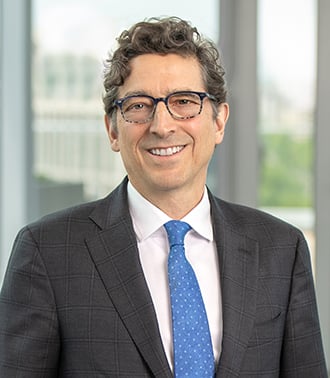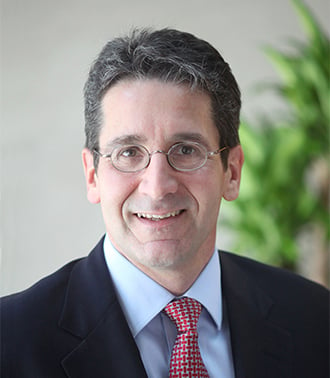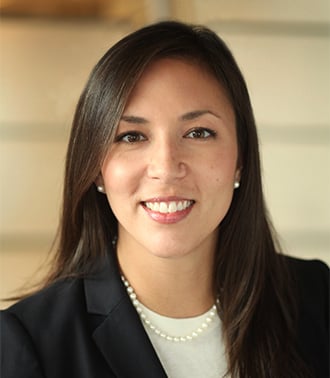In Benchmark Product Safety Case, Corporate Executives Sentenced to Prison for Late Reporting Under Section 15
Introduction
For the first time, corporate executives have been sentenced to federal prison terms for failure to report information concerning a potential product safety hazard as required by Section 15(b) of the Consumer Product Safety Act (CPSA). On June 16, 2025, U.S. District Court Judge Dale Fischer in the Central District of California sentenced defendants Simon Chu and Charley Loh to terms of incarceration following their November 2023 convictions for (1) conspiracy to defraud the United States by obstructing the Consumer Product Safety Commission (CPSC), and (2) failure to report product defects and hazards to the CPSC, in connection with their conduct in United States v. Gree (2:19-cr-00193-DSF, C.D. Cal.). Judge Fischer sentenced Chu to 38 months of incarceration, three years of supervised release, and a $5,000 fine, and Loh to 40 months of incarceration, three years of supervised release, and a $12,000 fine. As discussed below, these prison terms and financial penalties are significantly less than those requested by the government.
Background
CPSA
Section 15(b) of the CPSA requires manufacturers, importers, distributors, and retailers of a consumer product distributed in U.S. commerce to report “immediately” to the CPSC upon receipt of information that reasonably supports the conclusion that the product “contains a defect that could create a substantial product hazard” or “creates an unreasonable risk of serious injury or death.”1 15 U.S.C. § 2064(b). Failure to report timely as required by Section 15(b) is unlawful, 15 U.S.C. § 2068(a)(4), and companies may be subject to criminal penalties for “knowing and willful” violations of § 2068. 15 U.S.C. § 2070(a). Additional criminal penalties — including imprisonment of up to five years — may be imposed against “[a]ny individual director, officer, or agent of a corporation who knowingly and willfully authorizes, orders, or performs” such violations of Section 15(b). 15 U.S.C. § 2070(b).
United States v. Gree
On October 29, 2021, the U.S. Department of Justice (DOJ) announced the resolution of the first criminal corporate enforcement action for late reporting through a deferred prosecution agreement with criminal penalties of $91 million.2 DOJ previously charged Gree Electric Appliances Inc. of Zhuhai (Gree Zhuhai), Gree Appliance Sales Co., Ltd., (Gree Hong Kong), and Gree USA, Inc. (collectively, the Gree Companies) with knowingly and willfully failing to report information about defects in certain dehumidifiers that had been linked to multiple fires, as the CPSA required. DOJ alleged that by September 2012, the Gree Companies knew that the dehumidifiers were defective and posed a risk to consumers, but they knowingly and willfully failed to report the information to CPSC until June 2013. According to CPSC’s press release announcing the 2013 recall,3 the Gree Companies were aware of more than 450 reported fires and $19 million in property damage connected to the recalled dehumidifiers. DOJ’s enforcement action resulted in a guilty plea from Gree USA, Inc.,4 a deferred prosecution agreement for Gree Zhuhai and Gree Hong Kong,5 and $91 million in monetary penalties and forfeitures. The criminal penalties against Gree followed what was then a record civil penalty of $15.45 million against Gree in March 2016 for “knowingly” late reporting in connection with the 2013 recall.6
United States v. Chu
In addition to the corporate enforcement actions in Gree, DOJ indicted Chu and Loh, both of whom were executives and part-owners of Gree USA, Inc., the entity that imported and sold the recalled dehumidifiers in the United States. United States v. Chu was the first-ever criminal prosecution of corporate executives for alleged violation of the CPSA’s reporting requirements. According to the indictment,7 as early as September 2012, Chu and Loh (then Gree USA’s chief administrative officer and CEO, respectively) received reports that the dehumidifiers could catch fire and were defective. The indictment also alleged that although the defendants knew that they were required to report the information to the CPSC immediately, Chu and Loh failed to disclose the information for at least six months while they continued to sell the products. DOJ asserted that they did not report the dehumidifiers to CPSC and did not recall them “because they did not want to pay the costs of a recall.”
Following a six-day trial, on November 16, 2023, a jury convicted Chu and Loh of (1) conspiracy to defraud the United States by obstructing CPSC, and (2) failure to furnish information as required by the CPSA. The jury found Chu and Loh not guilty of a third charge of wire fraud.
Sentencing: Contested Issues and Outcomes
As the first and only example of criminal penalties imposed on individuals for violations of CPSA reporting requirements, this proceeding sets a benchmark for future cases.
The government’s May 15, 2024 sentencing memorandum sought a 10-year prison sentence (five years for each charge), three years of supervised release, full restitution, and a criminal fine between $250,000 and $500,000.8 In their sentencing memoranda, Chu and Loh requested probation.
At the June 16 sentencing hearing, Judge Fischer sentenced Chu to 38 months for each charge, to be served concurrently, followed by three years of supervised release and a $5,000 fine. Judge Fischer sentenced Loh to 40 months for each charge, to be served concurrently, followed by three years of supervised release and a $12,000 fine. Of note, the judge remarked that a sentence of probation, or even a brief incarceration, would be “unacceptable,” and that such sentences “would not come near” promoting respect for the law or just punishment.
Sentencing Guidelines
The government’s sentencing memorandum requested that the court use the 2B1.1 sentencing guideline because “Defendants’ relevant conduct is steeped in fraud.”9 The court agreed that guideline 2B1.1 applied, since the defendants were convicted of a conspiracy to defraud the United States by obstructing CPSC. Although a sentence under 15 U.S.C. § 2068 corresponds with sentencing guideline 2N2.1 (see Appendix A), for offenses involving fraud, that guideline directs courts to the 2B1.1 guideline. The difference between the two guidelines is significant:
- Guideline 2N2.1: Provides a base offense level and few enhancements. Does not factor sales into guidelines range.
- Guideline 2B1.1: Provides for an increase of up to 30 levels based on the amount of “loss,” before adding enhancements or mitigating factors. Results in a higher guidelines range than 2N2.1.
Under the 2B1.1 guideline, the court imposed several enhancements for Chu and Loh’s sentences for:
- A loss greater than $9.5 million
- A substantial part of the fraud scheme being committed abroad
- The defendants’ awareness of a risk of death or serious bodily injury, even if no fatality or serious bodily injury occurred
- The involvement of 10 or more victims
The court also imposed a two-level reduction for acceptance of responsibility. This Advisory explores several of the enhancements below.
Calculating Loss
The Chu sentencing provides the court’s first interpretation of loss calculations in the CPSA context. The 2B1.1 guideline includes a table with increasing amounts of “loss” that correlate with increasing sentencing levels. The guideline defines “actual loss” as “the reasonably foreseeable pecuniary harm that resulted from the offense” and “intended loss” as “the pecuniary harm that the defendant purposely sought to inflict.”
The government advocated for a loss amount that would have added 28 levels to the defendant’s sentences, arguing that the defendants intended to defraud consumers of the full cost of the defective dehumidifiers. The government calculated the “loss” as the retail price of all units sold after the date at which the company should have reported to CPSC, an amount that would have exceeded $306 million.10 The defendants argued that the CPSC, rather than consumers, was victimized by the fraud, and that there was no financial loss because the agency suffered no economic damages. The court disagreed with the defendants’ argument, noting that consumers were victimized by the defendants defrauding the agency responsible for product safety regulation. The court added 20 levels for loss between $9.5 million and $25 million, which was the loss amount agreed upon in the United States v. Gree deferred prosecution agreement.
Substantial Financial Hardship
The 2B1.1 sentencing guideline provides for enhancements based on the number of victims who faced substantial financial hardship as a result of a defendant’s actions. The 2B1.1 sentencing guideline provides a four-level enhancement if the offense resulted in substantial hardship to five or more victims or a two-level enhancement if the offense involved 10 or more victims or resulted in substantial financial hardship to one or more victims. The sentencing guidelines define a “victim” as “any person who sustained any part of the actual loss,” where “actual loss” is defined as “the reasonably foreseeable pecuniary harm that resulted from the offense” and “pecuniary harm” is defined as “harm that is monetary or that otherwise is readily measurable in money.” The Chu sentencing provides additional guidance about what constitutes “substantial financial hardship.”
The court imposed a two-level enhancement for the existence of more than 10 victims and found that at least one of those victims suffered substantial financial hardship in connection to the misconduct.
In support of their request for an enhancement for substantial financial hardship, the government submitted a declaration that included statements from victims A.S. and E.S. (a married couple) and J.R. (an individual).11 The declaration for A.S. and E.S. stated that the family was displaced for one year as a result of a fire starting from the dehumidifier and E.S. stopped working to stay home with her children, who were “psychologically traumatized” by the experience. Insurance largely covered costs related to the fire. The declaration for J.R. stated that a dehumidifier fire caused smoke damage, after which they renovated their home and moved into a different home temporarily. The furnishings for the temporary housing totaled thousands of dollars. Neither declaration included a precise amount of the individuals’ alleged losses. The defendants argued that A.S. and E.S. did not sustain financial hardship because they were fully reimbursed by the insurance agency, and J.R.’s purchases of furnishings for a temporary home were optional. The court did not need to make a finding of substantial financial hardship after determining that there were 10 or more victims, but the court noted that at least one of these accounts constituted substantial financial hardship.
Defendants’ Organizer/Leader Role in the Criminal Activity
Guideline 3B1.1 provides for four-level, three-level, and two-level enhancements for defendants who played an aggravating role in the offense. While the government advocated for a four-level increase at the sentencing hearing, arguing that the defendants acted in an aggravating role involving five or more participants, the court denied the enhancement, finding that the government failed to establish that either defendant was an organizer under the definitions of section 3B1.1.
Defendants’ Mitigating Role in the Criminal Activity
Guideline 3B1.2 provides for four-level, three-level, and two-level reductions for defendants who played a mitigating role in the offense. At the sentencing hearing, Chu’s counsel argued that he was a minor participant compared to Loh and was thus deserving of a sentence reduction. The court, however, found that Chu did not have a mitigating role in the offense. Judge Fischer reasoned that Chu was not an employee; Chu instead owned one-third of the company and was aware of the issue with the dehumidifiers, which gave him a responsibility to report and provided financial gains from the delay in reporting.
Conclusion
In 2021, the Gree deferred prosecution agreement showed that consumer product companies can face substantial criminal penalties, subsequent and in addition to the payment of substantial civil penalties for alleged failure to meet the reporting requirements of Section 15(b) of the CPSA. In 2023, after the first criminal indictments and trial of corporate executives for alleged violations related to the Section 15 reporting requirement, convictions of Chu and Loh showed that corporate executives could be found guilty of conspiracy to defraud the CPSC and failure to furnish information as required by the CPSA. Now, the sentencing in Chu reflects that courts can and will impose additional consequences — including prison sentences — for company executives found to have defrauded the CPSC and violated the CPSA Section 15(b) requirement to report “immediately” information that reasonably supports the conclusion that a product “contains a defect that could create a substantial product hazard” or “creates an unreasonable risk of serious injury or death.” Companies and executives should keep these potential consequences in mind when evaluating whether the company has a reporting obligation.
The authors are White Collar and Product Safety attorneys at Arnold & Porter. Please reach out to them for questions related to this Advisory or late reporting enforcement matters generally.
* Cassandra Bija contributed to this Advisory. Ms. Bija is a summer associate in Arnold & Porter’s Los Angeles office.
© Arnold & Porter Kaye Scholer LLP 2025 All Rights Reserved. This Advisory is intended to be a general summary of the law and does not constitute legal advice. You should consult with counsel to determine applicable legal requirements in a specific fact situation.
-
CPSC interprets “immediately” to be within 24 hours after a company obtains the requisite information. If a company is uncertain about whether information is reportable, it may investigate the matter. CPSC presumes that 10 working days are sufficient to conduct “a reasonably expeditious investigation,” unless the company “can demonstrate that a longer period is reasonable.” 16 C.F.R. § 1115.14(c).
-
Kelsie Sicinski, Michelle F. Gillice, & Murad Hussain, A Historic First in Consumer Product Safety Act Enforcement: Corporate Criminal Penalties for Late Reporting Under Section 15, Enforcement Edge Blog (Nov. 12, 2021).
-
Gree Reannounces Dehumidifier Recall Following 450 Fires and $19 Million in Property Damage; Brand Names Include Frigidaire, Soleus Air, Kenmore and Others, CPSC.gov.
-
Plea Agreement for Defendant Gree USA, Inc., U.S. v. Gree USA, Docket No. 2:21-cr-00498-MCS (C.D. Cal. 2021).
-
Deferred Prosecution Agreement for Defendants Gree Electric Appliances, Inc. of Zhuhai, and Hong Kong Gree Electric Appliances Sales Co., Ltd., U.S. v. Gree USA, Docket No. 2:21-cr-00498-MCS (C.D. Cal. 2021).
-
Gree Agrees to Pay Record $14.5 Million Civil Penalty, Improve Internal Compliance for Failure to Report Defective Dehumidifiers, U.S. Consumer Product Safety Commission (Mar. 25, 2016).
-
Indictment, U.S. v. Chu, Docket No. 2:19-cr-00193-DSF (C.D. Cal. 2019).
-
The government removed its request for restitution in a March 3, 2025 filing.
-
Government’s Response in Opposition to Objection to Presentence Report at 12, U.S. v. Chu, Docket No. 2:19-cr-00193-DSF (C.D. Cal. 2024).
-
Government’s Objections to Presentence Report and Sentencing Memorandum re: Defendant Charley Loh at 6-7, U.S. v. Chu, Docket No. 2:19-cr-00193-DSF (C.D. Cal. 2024); Government’s Objections to Presentence Report and Sentencing Memorandum re: Defendant Simon Chu at 6-7, U.S. v. Chu, Docket No. 2:19-cr-00193-DSF (C.D. Cal. 2024).
-
Government’s Revised Position on Sentencing Related to Substantial Financial Hardship Victims at attachment 1, U.S. v. Chu, Docket No. 2:19-cr-00193-DSF (C.D. Cal. 2025).







